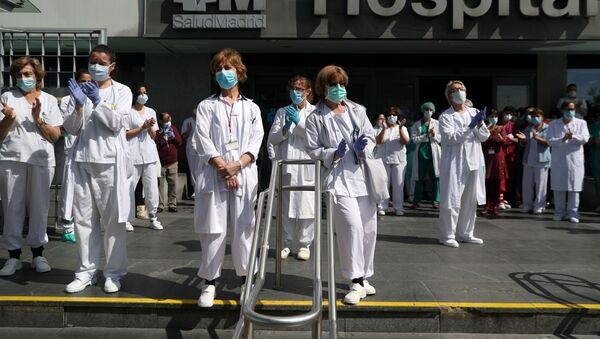"I do not think we have ever experienced the gravity of the situation, even during H1N1, as we see today. It has been described by health officials as unprecedented. The fact that you have countries around the world most of them on lockdown is something that is brand new for the world. Even during H1N1, we did not see airports closing, borders closing, no one allowed in or out of the country, airspace completely empty", UN World Food Programme (WFP) Senior Regional Communications Officer For the Middle East, North Africa, Eastern Europe and Central Asia Abeer Etefa said.
The swine flu pandemic lasted from January 2009 to August 2010 and affected over 200 countries and overseas territories or communities. According to the World Health Organisation (WHO), the H1N1 outbreak caused over 18,449 deaths globally.
She recalled that the current situation has been viewed as one of the worst health crises in modern history and has been compared to the 1918 Spanish flu pandemic, which lasted two years.
The 1918 influenza pandemic, known as the Spanish flu, which was one of the deadliest pandemics in history, infected an estimated 500 million people worldwide. The number of deaths from the Spanish flu is estimated at 20-50 million people
She added that the economic impact of the pandemic might be even more drastic than the health threats themselves, leaving millions of people to choose between starving and complying with the lockdown rules.
"The main issue why the people are going to be impacted and face hunger is because of the consequences of the virus on the economy of countries … There is going to be a huge impact on the millions of people around the world, who are dependent on their wages to feed their families. Our job is to raise awareness about this crisis and the future of millions of people who will be impacted by that", Etefa underlined.
Earlier in the week, the WFP warned that the number of people facing acute food insecurity could almost double in 2020 and jump from 135 million to 265 million due to the economic consequences of the COVID-19 pandemic.
WHO declared the COVID-19 outbreak a pandemic on 11 March. To date, more than 2.7 million people have been infected with the coronavirus worldwide, and over 190,000 have died due to related complications, according to Johns Hopkins University.

